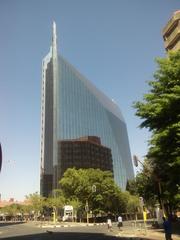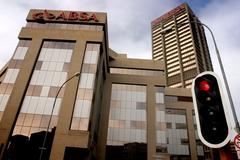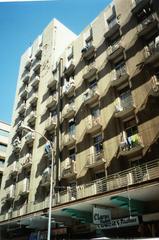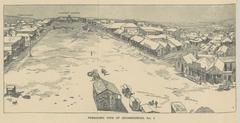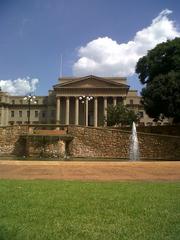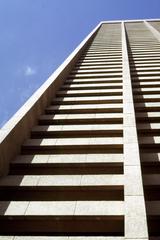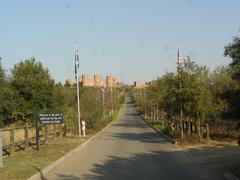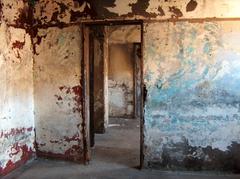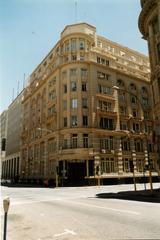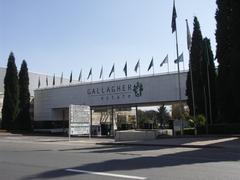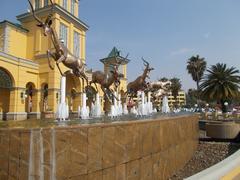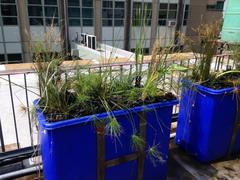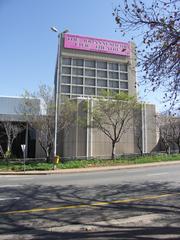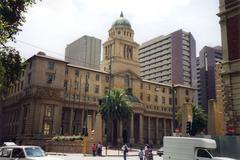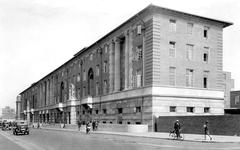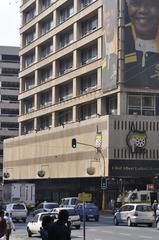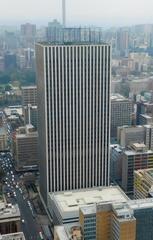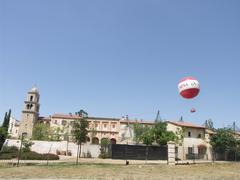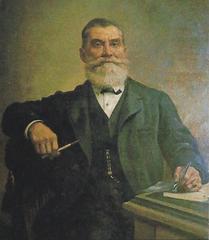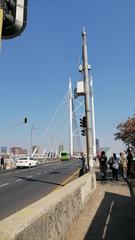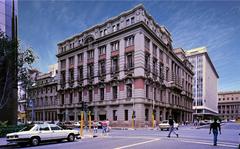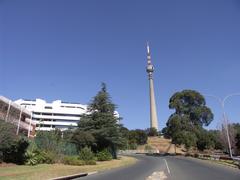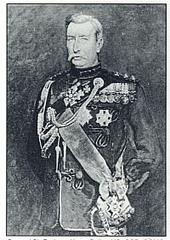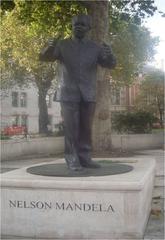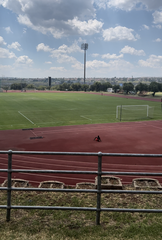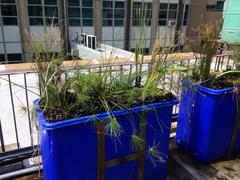
Johannesburg Trades Hall: Visiting Hours, Tickets, and Historical Sites Guide
Date: 03/07/2025
Introduction
Situated in the heart of Johannesburg’s Central Business District, the Johannesburg Trades Hall is a cornerstone of South African labor history and a fine example of early 20th-century architecture. This guide details the Hall’s origins, historical and cultural significance, architectural features, visiting information—including hours, ticketing, accessibility, and safety tips—and nearby attractions. Whether you are a history enthusiast, architecture admirer, or a curious traveler, exploring the Trades Hall provides an immersive experience into Johannesburg’s past and present (Johannesburg Heritage Foundation; South African History Online; Heritage Register PDF).
Table of Contents
- Introduction
- Historical Background & Labor Significance
- Architectural Features & Preservation
- Visiting Information
- Nearby Attractions & Suggested Itineraries
- Community Role & Contemporary Relevance
- Frequently Asked Questions (FAQ)
- Conclusion & Responsible Tourism
- Resources & References
Historical Background & Labor Significance
Origins and Role in Labor Movement
Commissioned by the Johannesburg Trades and Labour Council and completed in 1914, the Trades Hall served as headquarters for the burgeoning trade union movement during the city’s industrial boom. The discovery of gold on the Witwatersrand attracted thousands of workers, fueling the rise of organized labor and making the Hall a nucleus for union meetings, rallies, and negotiations (South African History Online).
From its earliest days, the Hall was home to pioneering unions such as the Amalgamated Society of Carpenters and Joiners and the Amalgamated Society of Engineers (The Anarchist Library). By 1919, the South African Industrial Federation—headquartered here—boasted more than 45 affiliated unions, reflecting the Hall’s central role in labor activism.
The 1922 Rand Revolt
The 1922 Rand Revolt was a defining moment for the Trades Hall. During this strike by white miners against wage cuts and job losses, the Hall became the organizing center for union leaders and “striker commandos” (The Heritage Portal). This episode, which left over 200 dead, underscored the Hall’s enduring association with resistance and the complexities of South Africa’s labor history.
Anti-Apartheid and Social Dialogue
Beyond its labor roots, the Hall hosted anti-apartheid meetings and community forums throughout the 20th century, reinforcing its reputation as a democratic space for civic engagement, social dialogue, and political mobilization (Joburg ETC).
Architectural Features & Preservation
Edwardian and Greek Revival Design
Designed by Aburrow & Treeby, the Hall is a rare Johannesburg example of Greek Revival and Edwardian architecture (Heritage Register PDF). Its temple-front façade features giant Ionic columns, a projecting neoclassical pediment, and finely banded pilasters. The building’s robust sandstone construction, ornate stonework, and high ceilings embody the civic grandeur typical of pre-World War I Johannesburg.
Interior Details
Inside, the Hall retains original features such as pressed ceilings, wood-paneled staircases, and tiled floors. These elements evoke the aspirations for dignity and permanence among early labor organizers. The spatial layout—meeting rooms, offices, and a central hall—was designed to accommodate union activities and community events.
Conservation Status
Declared a National Monument in 1986 and now a Provincial Heritage Site, the Hall is protected by law. Ongoing conservation efforts aim to maintain its structural and historical integrity, despite challenges of urban decay and changing uses (South African Heritage Resources Agency). Heritage organizations continue to advocate for its adaptive reuse and preservation.
Visiting Information
Location & Access
- Address: 52-54 Loveday Street, Johannesburg CBD
- Transport: Easily accessible via Rea Vaya bus, Gautrain (Park Station nearby), and public taxis. Secure parking is available in adjacent lots (Rough Guides).
Visiting Hours & Admission
- Standard Hours: Monday to Friday, 9:00 AM – 4:00 PM. Weekend openings for special events or exhibitions.
- Admission: Entry is generally free or requires a nominal fee (R20–R50) for special exhibitions. Donations support preservation (Gauteng Tourism).
Guided Tours & Events
- Guided Tours: Offered by the Johannesburg Heritage Foundation and local operators. Advance booking is recommended for in-depth tours covering architecture, labor history, and political milestones.
- Educational Programs: Schools and research groups can arrange workshops and archival visits. The Hall frequently hosts public lectures and temporary exhibitions.
- Events: The Hall remains a venue for union meetings, public forums, and cultural festivals. Consult the Johannesburg events calendar for upcoming activities.
Accessibility & Safety
- Accessibility: Ramps and elevators are available, but some historic areas may be less accessible. Contact the Hall in advance for special accommodations.
- Safety: Explore during daylight, stay aware of surroundings, and consider joining a group tour for guidance (Rough Guides).
Photography & Souvenirs
- Photography: Permitted unless otherwise indicated during special exhibitions. The façade and interior architectural details offer excellent photo opportunities.
- Gift Shop: Books, postcards, and crafts support heritage preservation.
Nearby Attractions & Suggested Itineraries
Within Walking Distance
- Johannesburg City Hall: Edwardian Baroque landmark.
- Carlton Centre: Africa’s tallest building with city views.
- Johannesburg Art Gallery: Extensive art collections.
- Museum Africa: Social and cultural history exhibits (Museum Africa).
- Newtown Cultural Precinct: Galleries, theaters, public art.
- Market Theatre: Hub for South African performing arts.
- Constitution Hill: Former prison, now the Constitutional Court and museum.
Suggested Itinerary
Begin with a morning tour of Trades Hall, enjoy lunch in Newtown, and explore nearby museums and galleries in the afternoon (Rough Guides).
Community Role & Contemporary Relevance
Though no longer a union headquarters, the Trades Hall remains a symbol of labor rights, social justice, and democratic engagement. Heritage organizations, local historians, and activists regularly reference its legacy in debates about urban renewal and the preservation of public spaces (The Heritage Portal). The building continues to host community events, educational programs, and cultural festivals.
Frequently Asked Questions (FAQ)
Q: What are the Johannesburg Trades Hall visiting hours?
A: Monday to Friday from 9:00 AM to 4:00 PM. Occasional weekend openings for special events.
Q: Is there an admission fee or ticket required?
A: General entry is free or requires a nominal fee for exhibitions. Guided tours or special events may have additional costs.
Q: Is the Hall wheelchair accessible?
A: There are ramps and elevators, but some historic areas may have limited accessibility.
Q: Are guided tours available?
A: Yes, through the Johannesburg Heritage Foundation and affiliated operators. Advance booking is advised.
Q: How do I get there?
A: The Hall is at 52-54 Loveday Street, accessible by Rea Vaya bus, Gautrain (Park Station), and taxi.
Q: What attractions are nearby?
A: City Hall, Carlton Centre, Museum Africa, Johannesburg Art Gallery, Market Theatre, and Constitution Hill.
Conclusion & Responsible Tourism
The Johannesburg Trades Hall is a living emblem of South Africa’s labor movement, urban resilience, and architectural heritage. Its enduring relevance lies in its ability to connect past struggles with present challenges, offering visitors a unique encounter with Johannesburg’s complex and vibrant history. Support its preservation by respecting guidelines, making donations, and engaging with community events. For guided audio tours and updated heritage information, download the Audiala app.
Resources & References
- Johannesburg Heritage Foundation
- South African History Online
- Heritage Register PDF (2004 Survey by Bruwer)
- Gauteng Tourism Authority
- The Heritage Portal
- South African Heritage Resources Agency
- Joburg.co.za Historic Sites
- Joburg ETC
- The Anarchist Library – South Africa Labor Movement
- Museum Africa
- Allevents Johannesburg Calendar
- GPSmyCity
- Tourist Places Guide
- Rough Guides
- Trek Zone

